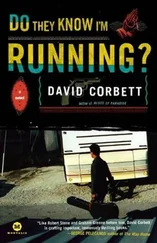But we’re not here to reflect on all that, he reminded himself. We’re here to remember Mother.
He tried to picture her, but the scenes that came to mind were hazy and unpleasant. His mother had been an unhappy woman married to a man born to perfect other people’s unhappiness. Vincenzo and Regina. The glib deadbeat and the suffering saint. They had two children, Daniel and Christina. There. Take a snapshot, carry it around in your wallet. Remember.
He tried to bring to bear the good things, the remarkable things. His mother at one time invested the whole of her heart in Dan and his younger sister, wanting them to regain the station in life she’d surrendered by marrying their father. At least once a week the three of them visited the Museum of Art, or the Palace of the Legion of Honor. Twice a year she treated them to the opera. She instructed them on the reasons why Verdi’s Otello surpassed Shakespeare’s. She explained to them in whispers the meaning of words like coloratura , bel canto , entr’acte .
Shortly these memories blended together until every recollection resembled the next. Then the one he always tried to avoid rose up.
It happened on a Sunday. They were just sitting down to afternoon supper when steps clattered in the hallway. Someone pounded hard on the door. His father went white and gestured for everyone at the table to be still. The pounding came again, harder, and a voice called out, “Vince, don’t fuck around, we can smell the food, you asshole.” Christina began to cry. Her father shot to her side and cupped his hand across her mouth, so hard the rest of her face flared red. She grabbed at her father’s arms, gasping, beginning to sob, and he jerked her head to remind her, Be still. Everyone stared at the door. “Have it your way, Vince,” the voice in the hallway called out. “Comin’ in.” Vince Abatangelo let go of his daughter, looked around helplessly, but only managed to edge backward, further into the room, as the first blows hit. The door cracked open on the fourth kick. A hand reached through the gash in the wood and unlatched the bolt, the door opened. There were three of them. The one who did the talking removed his hat, nodded to Gina Abatangelo, then said, “Didn’t have to be this way, Vince. Get your coat. Joey wants to talk to you.” Joey was Joey Twitch Costanza, the local shylock. The men he’d sent were collecting on a juice loan made to cover gambling debts. Once he realized he wasn’t going to be beaten in his own home, Vince Abatangelo’s mood transformed into one of groveling good cheer. He introduced his family, asking the men if they didn’t want to sit down. “Nick, we’re just about to eat. Sit.” He was told once again to get his coat. The one who did the talking nodded to Gina Abatangelo again- to say what? We’re sorry? Don’t wait? They led him out and closed the shattered door behind them. Soon their steps were on the stair, and the sound faded into the street noise. Christina sat simpering in her chair. Their mother stared at the door, hands to her face. Abatangelo could still remember the meal: ziti with summer sauce, pettile e fagioli, braised veal.
Abatangelo smiled drearily. And that is what there is to remember, Mother. Your son the felon, his memory’s got a certain bent. But I miss you. Miss whoever it was buried inside you I never quite came to know.
Forsaking the lighthouse trail, he made way instead up a snaking path through salty rock to one of the lower bluffs crowned with hemlock. He turned to look one last time at his mother’s resting place, the slate-gray ocean, the scavenging gulls, the relentless mass of fog. Turning to continue on, he discovered the path dead-ended halfway out. He had to forge his way through overgrowth to get back to the car.
Shel emerged from the guest room near twilight, wanting this day of all days to be over. She’d spent the whole afternoon sitting at the window, chasing one cigarette with the next and staring out at the south pasture. Danny, she thought. You never should have sent him that letter. Dumb. Pointless. You’ve got a world of unfinished business here.
She’d mulled over Frank’s latest pronouncement, the windfall he’d alluded to over lunch. I should check in on him right away, she told herself, should have done it hours ago. Return him to Planet Now. Instead she went into the bathroom to wash her face and brush her teeth. Glancing out the bathroom window she saw Frank’s truck was gone.
She bolted into the hallway, calling out for him, lunging room to room. Please, God, she thought. Just this once.
After a third fruitless search of the house she relented and made her way back toward the kitchen. Rowena, Roy Akers’s girlfriend of late, sat there, back from a day of God knew what and dressed for work as she knew it. Rowena was the most recent abomination foisted on Shel and Frank. She’d moved in during the last month on Roy’s orders. Since Roy owned the house, there was nothing to say.
The girl was short, thick-limbed and plain, a rowdy brunette with gray eyes and a nose too small for her face. Her skin was so densely freckled it resembled a burn. Shel sometimes imagined the girl’s lungs, her heart, her bones all measled with vague red spots. She was playing solitaire with the radio on, sitting in the breakfast nook, her stockings lying in a filmy tangle beside her shoes.
“I was looking for Frank,” Shel said.
“I gathered from the noise.”
“You seen him?”
“Nope.”
“How long you been here?”
Rowena groaned. “Oh, please.”
The radio blared old soul tunes, something Rowena didn’t dare listen to if Roy was around.
“Mind if I sit down?” Shel asked.
“You want the truth?”
Roy had met Rowena in a local bar, hustling truckers for drinks. He’d wooed her with drugs and a place to live, then put her up with Frank and Shel. Someone to watch the watchers. When he realized she had a child, a vaguely mulatto boy named Duval, he lost interest, except for the income she provided, which he called rent.
Roy put her back to work at a marginally better locale, a hotel lounge near the commuter airport in Concord. He drove her there three nights a week and sat there watching as she did her thing, asking the suits to dance, accepting their drinks, laughing at their jokes, touching them. Roy set the number of work nights at three, figuring any more than that meant she liked it too much; any less, she liked it too little.
Shel said, “Roy running late?”
“Don’t start with me.”
“I was just asking.”
“No one ever just asks. Least of all you.”
She was smoking menthols, and one jutted from the crook of her mouth as she shuffled her discards.
Shel tried again. “What I mean is, it’s getting late. I wondered if Roy had maybe called things off for tonight.” Snapping the cards, Rowena played the jack of clubs on the queen of diamonds. “If that’s so,” Shel went on, “I mean, if you’re staying in, well, I’ve got a favor.”
“Not a chance,” Rowena said.
“Just hear me out.”
“I just did.”
“Look, I can’t just wait here, I’ve got to track down Frank. If he comes back while I’m gone, I need him to stay put.”
Rowena looked up. Her eyes were dull with annoyance. “Please,” she said, “don’t tell me your problems.”
She returned her attention to the cards, scratching her freckled arm. Shel sighed and got up to go. A haze darkened the edges of the room. She felt tired. Depressed.
“Come on,” she said, trying one last time. “Be civilized.”
“I am civilized,” Rowena replied. She ran her thumbnail down the edge of the cards. The nail polish had been chewed away. “I’m the most civilized person you’ll ever meet.”
Читать дальше












